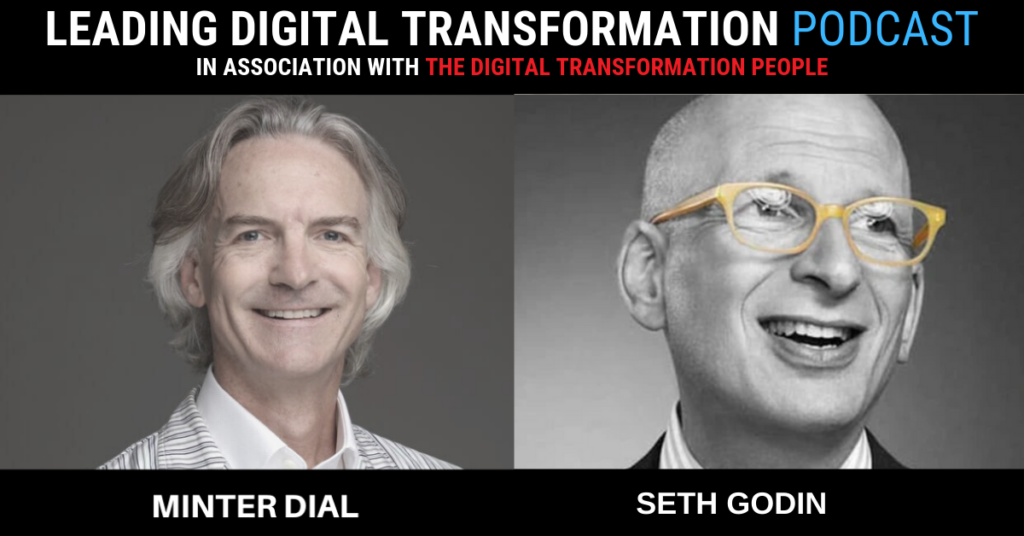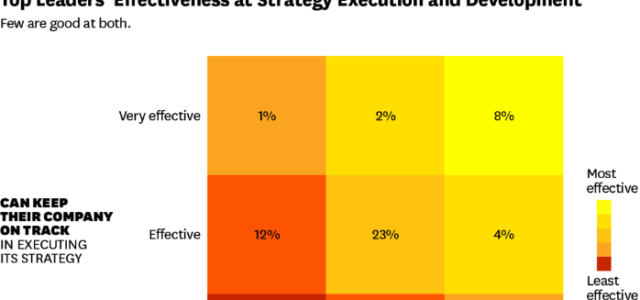Minter Dial; professional speaker, storyteller, consultant and veteran executive best-selling author and a specialist on new tech, branding and digital strategy shares a fascinating conversation with the legend that is Seth Godin.
Starting with some perspectives on the challenges of change and digital transformation this conversation rapidly moves onto some fundamental insights which much like Seth’s AltMBA will challenge and enlighten your thinking – leaving you invigorated and better equipped to grasp the opportunities of the world we live in today.
Listen here or read the transcript below
[Minter Dial 00:00:01] Welcome, Seth Godin to the Minter Dial dialogue. It is an honour and a privilege to have you onboard Seth. I’m so glad. Thanks for coming on.
[Seth Godin 00:00:05] Well, thank you for doing this. It is fun.
[Minter Dial 00:00:06] So, we’ve got a lot that we can be riffing on Seth, because you’ve obviously traversed the world in so many ways, written so many things and lead in so many inspirational manners. But I have roughly five areas I wanted to try and delve into in the 30 minutes we have together and the theme is ‘change’. So, basically, I work over in Europe, and I’m dealing with digital transformation, it’s all the rage. And yet we know that change or transformation programs are suffering and are not really working. So, I was wondering, what is the key? Or what might be the linchpin of change as far as you’re concerned and making organizations get this digital transformation to happen?
[Seth Godin 00:00:32] Well, it’s not popular, but it’s true. And the answer is failure. What it means to be lean, is to engage in the marketplace, minimum viable product experiments, things to explore the edges. And the reason that it’s called exploring is because you’re not sure it’s going to work. So, if you go at this, and say, how can you guarantee it’s going to work, then you will fail?
[Minter Dial 00:00:47] So, what about fear? Is that another F word that goes in there?
[Seth Godin 00:01:25] So, fear of failure is even worse than failure, because fear of failure happens before that. We can initiate fear of failure without doing any work whatsoever. I think then, the key for an organization as opposed to an individual is to use the power of the organization to set fear aside, the organization makes a deal with you, which is; come to work every day, do what we say and in exchange, we promise to keep paying you. Well, if the organization has earned that trust, then leadership is about being able to say to your people: ‘This feels frightening, but you’re safe. We need to go fail now, because it’s the only way we’re going to get better at this.’
[Minter Dial 00:02:12] And presumably, the head of the company has to lead by example and therefore be prepared to make a fool of him or herself.
[Seth Godin 00:02:23] Well, fool it is a loaded word. I think there’s a big difference between management and leadership. And organizations with more than five people that are successful, have managers and leaders. Managers help people do what they did yesterday, but faster and cheaper. They’re in the business of compliance, whereas leaders are in the business of failing forward. So, yes, that CEO at the top, she has to be a leader. And what that means is redefining what it is to make a fool of yourself. It seems to me that somebody who’s a fool is a car company executive that lost a ton of market share to Tesla, when they had everything they needed to build their own version of that. That’s foolish. The reason that the big car companies didn’t do that is because they were afraid, not because they couldn’t,
[Minter Dial 00:03:16] Totally. I’ve ever listened to so many of your different talks and I know how important you think of this concept of fear. So, Seth, question that I definitely want to hear from you is, of all the books you’ve written, which do you believe has provided, provoked the most change in the business world.
[Seth Godin 00:03:37] Well I have a particular approach to my books and the approach is, I try to tell people things that they already knew. That if I do it, well, people will say, of course, and then they will do that thing that they were hesitating to do. And every once in a while, I say something that is completely original. But that’s not my best work. My best work is helping people get in sync around a truth that they can embrace. And with that said then, the books that have touched the most people are ‘Purple Cow’ and ‘The Dip’ and ‘Linchpin’. And in all three cases, what I’ve done is helped people organize those around them to move forward. And that’s the thing, we live in this astonishingly privileged moment in time, the world is safer than it has ever been. There are more resources for more people, and we are wasting it. And we’re wasting it because we’re afraid.
[Minter Dial 00:04:37] It’s like these ‘duh’ moments.
[Seth Godin 00:04:41] It’s a good way to say it in far fewer words that I just used.
[Minter Dial 00:04:48] So, Seth, again, looking at the books you’ve written, we’re going to talk about a couple of them a little later, but which is the one that you learned the most from which perhaps you also got the most energy from providing?
[Seth Godin 00:05:01] I would pick two. The first is ‘Survival is not enough’, which is a book that sold almost no copies. It’s about evolution. I certainly read more books, did more research, worked harder on that book. I probably put 3000 hours of writing into that book. It didn’t work because people are afraid of evolution, particularly in the United States. But I learned a ton. It changed my outlook. And then the most recent book, ‘What to do when it’s your turn’, which I illustrated myself got myself back into the habit of page layout. And it helped me explore things associated with mindfulness. And because I forced myself to make every part of it fit on one page, I had to do a lot of boiling down.
[Minter Dial 00:5:50] Do you practice mindfulness?
[Seth Godin 00:05:52] Well, on a good day, I try. But without trying, of course.
[Minter Dial 00:5:56] I’ve been introduced to a new app, if you will, from someone like Andy Puddicombe. She’s called Monique Rhodes from New Zealand. And she has spent a lot of time with the Dalai Lama. And anyway, I’ve been having her in my ears every morning and bringing a lot of mindfulness to me. So, again, I’m focusing on this notion of change. If you’re running a business today, you’ve got to have the best products, you got to recruit and retain the best talent, you’ve got to deal with shareholder pressure and short-term profits. So, it’s a hair raising combination. The question I have for you is, to what extent do you believe that purpose is the only winning long term strategy?
[Seth Godin 00:06:44] Well, we get into semantics really fast here. What does purpose mean to you? Well, generally speaking, I want to look at purpose as being something beyond just making money, some bigger purpose, other than just feeding the shareholder. So, if somebody leaves their job as Senior Vice President at Starbucks and takes a job as Senior Vice President of Nike, has their purpose changed?
[Minter Dial 00:7:12] Their personal purpose? Well, that depends what they’re looking for as personal purpose, if their purpose is to make people move faster than I would argue that no, they actually…
[Seth Godin 00:7:24] Hahaha, that was very clever. Okay, so let me try to tell you where I’m going here, corporations are not people, people are people. And people generally have a purpose that’s fairly generic, there’s only five or 10 to choose from. It is not specific, that my purpose is to create more Kimchee in the world. No. Your purpose is about respect and dignity and status and safety, that doesn’t change across humans. When a bunch of humans who share a handful of purposes, come together and build an organization, that organization finds a host of strategies and tactics that will let them engage with and change people for the better, so that they can achieve their personal purpose, which is safety, dignity, etc. So, I think that too often, we try to reverse engineer this purpose narrative, to hide the fact that, yeah, we want to make a profit so we can feel safe and respected. And there’s nothing wrong with that, because it could very well be that ethically, making a profit is a measure that you are serving somebody. On the other hand, if we say, in that horrible ‘Ayn Randian’ way, my purpose is to make a profit and it doesn’t matter which corners I cut and it doesn’t matter who I hurt, then I think just the very statement of that gives you away. So, I guess what I would come back to is this, you need a strategy because your tactics are going to fail. When your tactics fail, it helps to have a strategy so you can invent new tactics. I think your strategy ought to live within the boundaries that you’re proud of. That your strategy ought to be something you can point to and say, if it works, I will be delighted to take credit for it. So, if our strategy is to manipulate homeowners to get them to go to foreclosure, so we can make a profit, then thank you for being honest but no, I’m not proud of your strategy and I don’t think you should be either. But in the long run, because so many things change so fast, it’s really useful to have a strategy that you can count on.
[Minter Dial 00:9:45] Cool. So, if we’re talking about, for example, the ‘how’ that you were talking in the Ayn Rand example, and we were broaching the topic of ethics, the way I read that is that we’re talking about something that’s personal. And yet in business, we have been mostly trained to focus on the professional side of things and to leave the personal at home. To what extent do you believe that you need to bring your person to work and your full personality?
[Seth Godin 00:10:17] Well, if you feel like you have to leave your humanity at home, you need a new job. Right? That doesn’t mean that you get to act the way you feel like acting all the time, right? You feel like wearing a bathing suit to work, but you have a meeting with a banker, you wear a suit, because it’s going to help you with your long-term strategy. But if you’re ashamed of the work you do, the way you do it, and the people you do it with, and you’re still going to spend 2000 hours a year for 40 years doing it. I don’t understand who you are and why that’s on your agenda.
[Minter Dial 00:10:50] It seems that there are certain industries where it’s mostly about making money. And maybe there’s a political correctness reversal, but at some level, it’s almost like ‘well, I’m going to be ashamed about just making money’.
[Seth Godin 00:11:07] Well, there’s different kinds of making money. So, the hedge fund guys, who make millions and millions of dollars a year, they could point to the fact that by fixing a problem in the market, they were able to extract money that wouldn’t have been extracted if they hadn’t done it. I don’t believe that those people are more worthy than a school teacher. And I don’t believe that the money they got paid is an indication of their worth, I just think that they found a situation and used legal means to exploit it. And if that’s what you want to do, and it makes you happy to do it, then I’m not going to tell you not to do it. But I have a lot of problem with people who say, I make more money, therefore I create more value. I don’t buy that.
[Minter Dial 00:11:56] Alright, so I haven’t read all your books Seth but two of them that I loved are ‘We are all weird’ and ‘Tribes’. And somehow, I put them together. I feel that there’s a whole logic behind them. And I ran a company called Redken, which is a hairdresser company, of course you don’t need so much of that these days Seth but,
[Seth Godin 00:12:21] Well, I just have to interrupt because first of all, I’ve heard of it and secondly, we’re using video here and I have been admiring your loft, you’re very striking so well done.
[Minter Dial 00:12:31] Thank you, sir. So, Redken is this beautiful brand that sits within the L’Oreal portfolio. And we had a true tribe feeling to it. I would say I embrace this notion of weirdness. And I’m thinking that it’s somehow, because it’s still not mainstream, because at some level if everybody is bohemian, and everybody is weird, that will become the new norm.
[Seth Godin 00:12:59] Yeah, I’m glad you liked the book. But that’s not the punch line. The punch line of the book is, why does it make us uncomfortable to A: Imagine that we are weird and B: To proudly say as a marketer or business person I seek to serve the weird. Both of those things make us uncomfortable. And the reason is, until recently, the media profited from the narrative of ‘we are all the same’, ‘we are all normal’, that you need to watch this show, buy this product, to fit in. And the explosion of media options in the last 10 years has reversed that. So, now the media is telling us that being a fan of left handed sumo wrestlers is totally appropriate if you’re one of us, and marketers are having trouble keeping up with that, but that’s the future. So, L’Oreal has an interesting strategy of niche brands. But most of their niche brands aren’t niche. Most of these brands are mass. And we’re going to see, because it’s easier than ever to make stuff and easier to talk about stuff that we’re going to have more and more of these brands that a mass-marketer will just wrinkle her nose at and say, ‘well that’s niche’. But I’m arguing; there aren’t going to be anymore mass brands. There’s not going to be another Heinz ketchup, there’s not going to be another Ford Galaxy, that’s over. There’s no reason for it to be just one we have unlimited shelf space. We have unlimited media options. There’s no economies of scale, making 4 million cars here, so it won’t happen again. And I think the people at Heinz and Procter and Gamble, and L’Oreal are coming to realize that and the argument of ‘We are all weird’ and ‘Tribes’ is, that’s probably a good thing, unless you’re a shareholder in one of those giant companies. So, instead of saying, well that’s an asterisk, let’s understand that it’s the core now, it’s the thing that needs to be embraced.
[Minter Dial 00:15:02] Well, I totally go with that. There’s no doubt about that. The way I talk about it is the need to embrace imperfection, which is a little bit of a different variation. Because neither of them is taught in business school in any event.
[Seth Godin 00:15:15] Right. Business school is another problem that I could rant about for ages.
[Minter Dial 00:15:20] We are going to have a moment on that for sure because I want to talk about AltMBA before we finish. So, sticking with this weirdness element, right. So, on the one hand, everybody’s weird, we have to deal with all these different personalizations for all these customers around the world. And yet, what I was looking at was thinking about how me or my company, my brand is weird, and how it’s going to find affiliations with weirdness in people around the world, but not everybody, because you can’t be trying to attract everybody. So, then, as far as being the leader is concerned, to what extent does that leader need to incarnate that weirdness, because the challenge is, if I’m the CFO my job is just to make sure the count comes in at the end. But is it possible for a company to go for this weirdness without the boss being, he or she, the one that leads it?
[Seth Godin 00:16:20] Oh, most definitely, that you don’t have to be a woman to make pantyhose well, and market it well. And you don’t have to be a surgeon to come up with a scalpel, that will change the way a certain kind of surgery is done. So, I don’t think it’s necessary for the CEO of Harley Davidson to drive a giant motorcycle. It actually helps to develop empathy if you wear pantyhose and drive a motorcycle, but it is not required. We would like to believe that if you’re willing to be a leader, you will have enough empathy to act as if. To be able to say; if these were the factors in my life, this, in fact, is the way I’d want to interact. A simple example is; the people who design computer interfaces know how computers work, but I certainly hope that they are designing them for people who don’t know how computers work, that requires empathy.
[Minter Dial 00:17:28] All right. In a continuing vein, one of the things that I think is supremely, and more so today than it was let’s say 20 years ago anyway, is that the employee needs to embrace and be the brand far more so than in the past where messaging and marketing could just be blasted out through a 30-second spot. So, now what I’m thinking and the reason why I bring that up is that I have tended to believe that wearing pantyhose or driving the motorcycle is incarnating the values of the brand. And if you do that, then you lead by example, the rest of your employees will, there’s a recruitment process, an on-boarding process that leads them say: “Well, the boss does it, I should do it too”. Because if the boss doesn’t do it, then developing that empathy becomes harder throughout the organization.
[Seth Godin 00:18:17] Yeah, so in Linchpin, I talked about a marine Commandant named Krulak who coined Krulak’s Law in which he pointed out that World War One and World War Two were won by Generals. And that recent conflicts, it’s the private in the field who is making decisions that change everything. And so basically, what you’re doing is giving the lowest paid, lowest trained people in the organization the most important job of directly engaging with the customer. And the challenge that you have is, it’s very hard to scale true believers. And the second challenge is if you need to be a true believer to have empathy, it’s going to create brittleness, and a lack of mobility of point of view better to have professionals. Professionals who are trained to understand how to bring empathy to the situation. If you look at the unfortunate speed bump that Starbucks had this weekend in Philadelphia, where a manager called the police because two people were sitting in the store who were black. How do you train for that? Right? Is there now going to be a new rule in the Starbucks rule book. Because the Ray Kroc McDonald’s rulebook was, everything is a rule. Do not trust the frontline person to make any decisions. But going forward, what you need to be able to do is use your best judgment. Treat people the way you’d want to be treated. And then you need to spend time having people develop empathy that a white store manager cannot imagine what it is like to be a black real estate agent sitting in a Starbucks, but she can try. And it’s the trying, that we’re seeing come up over and over again, that empathy is about trying that you’re not using your power, even a clerk has power, to act as bureaucrat. You’re bringing your humanity to work and say, that’s what this place is. And, Ritz-Carlton, I always forget which hotel it is, their slogan is: Ladies and gentlemen, serving ladies and gentlemen. And the idea is, give the chambermaid, which is the bottom of the totem pole, a budget of $250 that she can spend any time she wants to make any customer happy. And you talk to someone at Marriott about that and they say that’s insane. But in fact, it’s the cheapest, simplest way to build an amazing hotel. Because it’s the chambermaid who sees everything. And so, if she has the power and the authority to say to a millionaire customer; “Oh, I’m very sorry, the room is on us tonight”. That’s going to change the entire hotels posture. And that is the future of smaller organizations dealing with weird tribal organizations, which is; we need to act like humans, we can’t have a rule book for everything.
[Minter Dial 00:21:17] Yeah, it’s about mindset, not policies.
[Seth Godin 00:21:19] Yeah, exactly.
[Minter Dial 00:21:21] I want to switch into AltMBA just right now. So, AltMBA, for anyone who’s listening or doesn’t know about it yet, in 2015, started by Seth Godin, as an alternative executive MBA, it’s a one month program, that’s very reasonable in pricing, something like three and a half thousand dollars. And it’s designed to have just maybe 100 people maximum per online course only. What is it that AltMBA, in your words provides that executive MBA programs are missing?
[Seth Godin 00:22:00] The Academy is built on the idea that knowledge is scarce. So, you come to the building with all the libraries and the books to gain knowledge. And given that knowledge, you can do something other people can’t do. And as of 10 years ago, knowledge is no longer scarce. That access to all the information is there. If you want to know the Black Scholes option pricing model, you can learn it in less than five minutes online. So, it doesn’t make sense to go spend two years or six months in a program designed to teach you something you could learn at home for free. So, what’s the future? The future is learning attitude, learning posture, learning, empathy, learning how to market to yourself what you are capable of. So, that’s why we built an intense workshop. We’re in more than 40 countries, we’ve got more than 2000 alumni now. And what we do is we help people see the world differently, make better decisions, be able to persuade others of their point of view. Those are the three things we teach. But there’s no videos, there’s no lectures, there is no acquisition of knowledge, zero. I am not in it. I’ve got 60 coaches around the world who are all alumni who are in it. And that self-fuelling, project orientation changes people. And so that’s how we built it. And we’re now in our 21st session, because it works. And the reason it works is that when you’re done, you can’t say to yourself anymore, I can’t go that fast, I can’t make that much change happen. I can’t see other people, because you just did it. And that’s what I’m trying to do going forward is create experiences, that can’t be unseen.
[Minter Dial 00:23:44] They’re rewiring people’s minds.
[Seth Godin 00:23:47] That’s the goal. And it only works because they’re enrolled, I can’t do it to people, I can only do it with people.
[Minter Dial 00:23:54] I haven’t taken it but what I did take away from some of the witnesses that went through it was this notion of empathy. That’s why I bring it up now. And also, this idea of, knowledge is within the group and that they called each other out. They all have to come with their game, to the party. And the learning also happens through the group.
[Seth Godin 00:24:17 ] Bingo. So, in the last session, Sheila, 80 years old, lived on the Isle of Man, is in a study group with someone who’s 27 years old and lives in Cleveland. And what usually happens at the beginning, is someone says; “Well, wait, I want to be in a group with other people who are senior executives and worked at Redken, or Red Bull or whatever it is”. But within an hour, they realize it is not about where you’ve been it’s about how do you see the world. Everyone sees it differently than you and that’s the process.
[Minter Dial 24:50] Well, I’m very curious as to how it goes. I wouldn’t put it against me going down but I also noted that the early decision deadline for the summer session, is this Monday, the 23rd of April, that’s me, who gets to sell it for you. So, I wanted to go back into one other thing Seth which is a European concept, which is GDPR, which is this legislation that’s coming in on May 25th in Europe. I would like to think of it actually as permission marketing law. What’s your take? And do we need something similar in the United States?
[Seth Godin 00:25:27] Yeah, so I, I have a podcast called the Akimbo and the last episode was about this. And basically, I accepted to blame for helping to invent the problem. When I was at Yahoo, in 1998-9, we started to use data mining, because advertisers want to run first priority ads that reach everyone. And if they can’t afford that, second priority ads that reach people who are going to respond as cheap as possible. That’s all advertisers want. What does Google and Facebook want? Google and Facebook want people/advertisers to auction, bid up every slot they’ve got. That’s where they make all their profit. So, you think about Google, you might pay $50 a click for the right ad on Google. And you’re going to do that, even if you only make $51 in profit. Because if you don’t, your competitor will. So, Google is keeping 49% of the profit and you’re getting, not 98% of profit, you’re getting 2%. Not fair but that’s the way it works. So, Google and Facebook want these auctions to go on. If you’re an advertiser then, you don’t want data for data sake, you want data because it makes things cheaper. And if your Google and Facebook, you’re doing it because they’re demanding it, not because you want to. So, GDPR if it’s done properly, and I’m not optimistic, but hopefully over time, solves everybody’s problem. Because it begins by saying if we do it right, raise your hand knowing what you’re signing up for, and therefore when you get these ads, you’ll like getting them. That’s what permission marketing is about. What it says to the advertisers is, you don’t have to race to the bottom anymore because there’s a law that moves the bottom up. That’s good. And what it says to Google and Facebook is “It’s an auction!”, people are still going to bid, so it’s all fine. As long as you don’t have guardrails, people are going to keep driving off the edge of the road. So, putting in guardrails is smart. Now, here’s the problem. The problem is, the regulators haven’t done their homework. And they’re going to create laws that look good, but are easy to get around. Where you click a button accepting cookies and then the next thing you know, they’re everywhere, it’s back to where we were. So, what we’re going to need is an ongoing series of regulations because that’s the only way to keep up with tech. Otherwise tech’s going to just drive right around it.
[Minter Dial 00:28:01] Continuous learning.
[Seth Godin 00:28:03] Yeah.
[Minter Dial 00:28:04] So, one last thing I wanted to cover was podcasting, which I’ve been listening to Akimbo and enjoying. In 2015, I wrote an article where I quoted you as saying that there would be a glutton podcasting, because there’s an infinite amount that you can create. I maintain that that article, that growth is going to be capped because of the poor ability to share podcasts. And also the poor discoverability, especially in iTunes. Overcast is doing a good job but what do you believe is the state of the business in podcasting? Is it something that more brand marketers should be looking at?
[Seth Godin 00:28:45] So, yes, I’ve made the glut worse by showing up with a podcast and I’m aware of that. I have the advantage of having a permission base of a million people. So, I’m cheating by going to the head of the line.
[Minter Dial 00:28:57] You deserved it, you built it up on purpose and done well.
[Seth Godin 00:29:00] Well, thank you. But if your goal is to build a media entity, starting with a podcast is problematic. It costs a lot of money to find out how you’re doing, you got to stick with it for a long time and as you pointed out, hard to search, hard to discover, hard to share. On the other hand, we have discovered that people like audio, and they’re happily multitasking while driving and running and everything else. So, if someone can consume two hours a day of podcasting, there’s a market to be made there. The question is, what’s the best way to monetize it? One approach is being a direct marketer, meaning you run ads, where the URLs have tags on them, and you can track cost per acquisition. That’s a really hard thing to do in audio. And the other way to do it is with brand sponsorship, and we know that brand sponsorship works. It just takes guts because you don’t know where it works. And I think podcasting is shifting now from direct because it didn’t work for most organizations. Like how many mattresses do you need to sell to pay for a $40,000 sponsorship, it’s too many mattresses. To a brand sponsorship model, which is more like American Express sponsoring the US Open. So, if you build a podcast, with a brand that people care about that isn’t a hard sell, it is worth sponsoring, even if you’re sponsoring your own thing, because it builds up the soft tissue around that work that you say you want to do. The marginal cost for a brand marketer to do that is tiny and you don’t need very many loyal listeners to be glad you did it.
[Minter Dial 00:30:43] So, in your last podcast on Akimbo, you talk a lot about the difference between direct marketing and brand marketing. And somehow, I feel that podcasts allow for a little bit more weirdness and humanity because, if I cough you’re going to hear me, if I interrupt you etc, that’s an authentic thing. And maybe that’s what brand marketing needs little bit more of.
[Seth Godin 00:31:05] Yeah well, brand marketing in the 60s, 70s and 80s stripped away all the Wabi Sabi, all of the humanity of it because polished was the easiest way to bring a reliable item to the masses. Quirkiness, we don’t sell Saabs or Citroens in the United States anymore because they were too quirky. But in a post-mass world, quirkiness is the difference. Everything else is going to be the same thing built in some factory somewhere. It’s the quirkiness that we’re going to talk about. So, yes, a brand that stands for something will have more trouble becoming McDonald’s, but have an easier time becoming Kiehl’s, or Redken or something that people actually care about. And that’s the future for most of us.
[Minter Dial 00:31:55] Beautiful, Seth, thanks for coming on the show. I’m not going to ask you how to be reached because if they don’t know how well they can surely find the show notes and I know how to reach you best for. With Twitter or your podcast or your fantastic little pithy blog statements. So, thanks for coming on the show Seth it’s been a delight.
[Seth Godin 00:32:14] This was great, I really appreciate it. Thank you for the work, will see you.
Visit The Digital Transformation People to secure the knowledge, talent and services you need for digital transformation success. Be sure to follow us on Twitter @TheDigitalTP and @mdial
Transcribed by https://otter.ai with human improvements by Oscar Dial
Article by channel:
Everything you need to know about Digital Transformation
The best articles, news and events direct to your inbox
Read more articles tagged:







